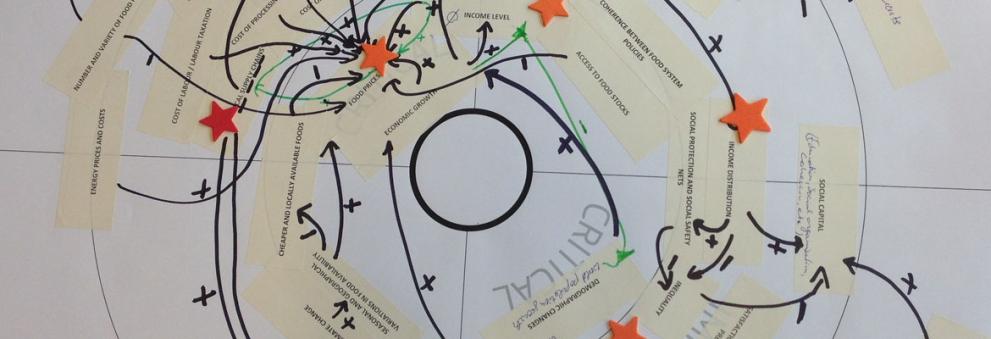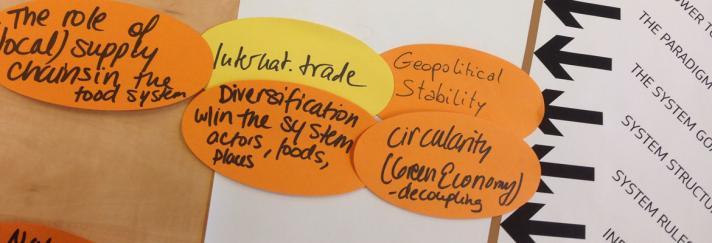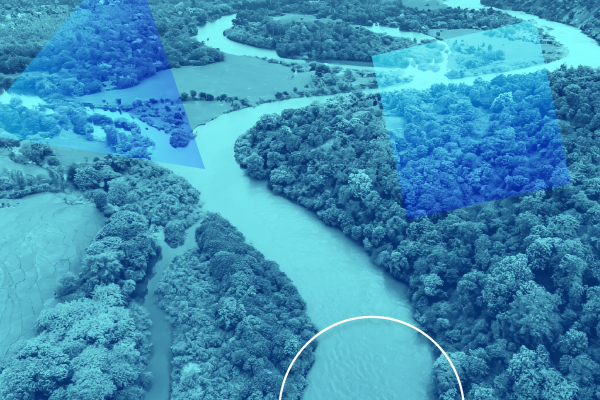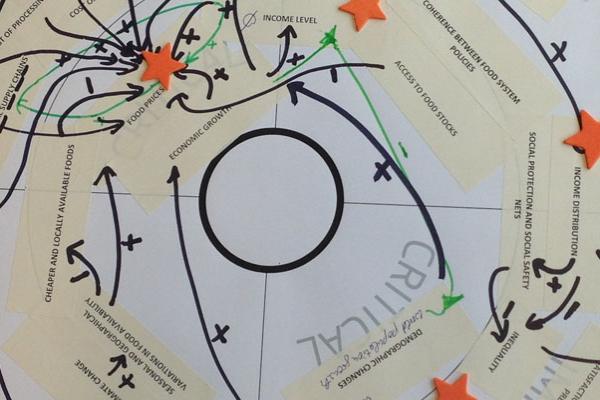
After a summer reflecting on the current state of the world’s food system, a major literature review and the development of a conceptual framework for analysing the future of the food system, the Policy Lab held it’s first in a series of workshops under the auspices of the Sustainable Food Systems project. We invited some of the in-house researchers and scientists in the European Commission’s Joint Research Centre that are currently working on various aspects of food systems to join us for the 1.5 day workshop, and to reflect on what would be needed in order to make today’s food system more sutainable and able to face the challenges of tomorrow (you can have a look at the report for a more detailed account of the workshop).
We will now need to move from the building of a food system approach to one which can assess the trade-offs and policy implications of transitioning future food systems towards sustainability. No small feat indeed, but one that we are excited to be working on and contribute to a fast-moving area of innovation and research (see also our work for DG RTD in this regard).
Mapping leverage points
In this workshop, the Policy Lab also trialled and successfully tested a systems-thinking methodology in which participants analysed firstly the different parts of the food system, secondly how these different parts are interconnected, and lastly the critical areas in the food system where a transition towards sustainability is necessary. Aside from generating interesting and fruitful discussions during the course of the workshop, the methodology used is also a promising new tool for systems’ analysis which could prove useful in many other fields, in particular for the Commission’s work related to the implementation of the UN’s Sustainable Development Goals. We hope to develop this as new line of services from the EU Policy Lab.
Details
- Publication date
- 26 October 2016
- Author
- Joint Research Centre
- EU Policy Lab tags




